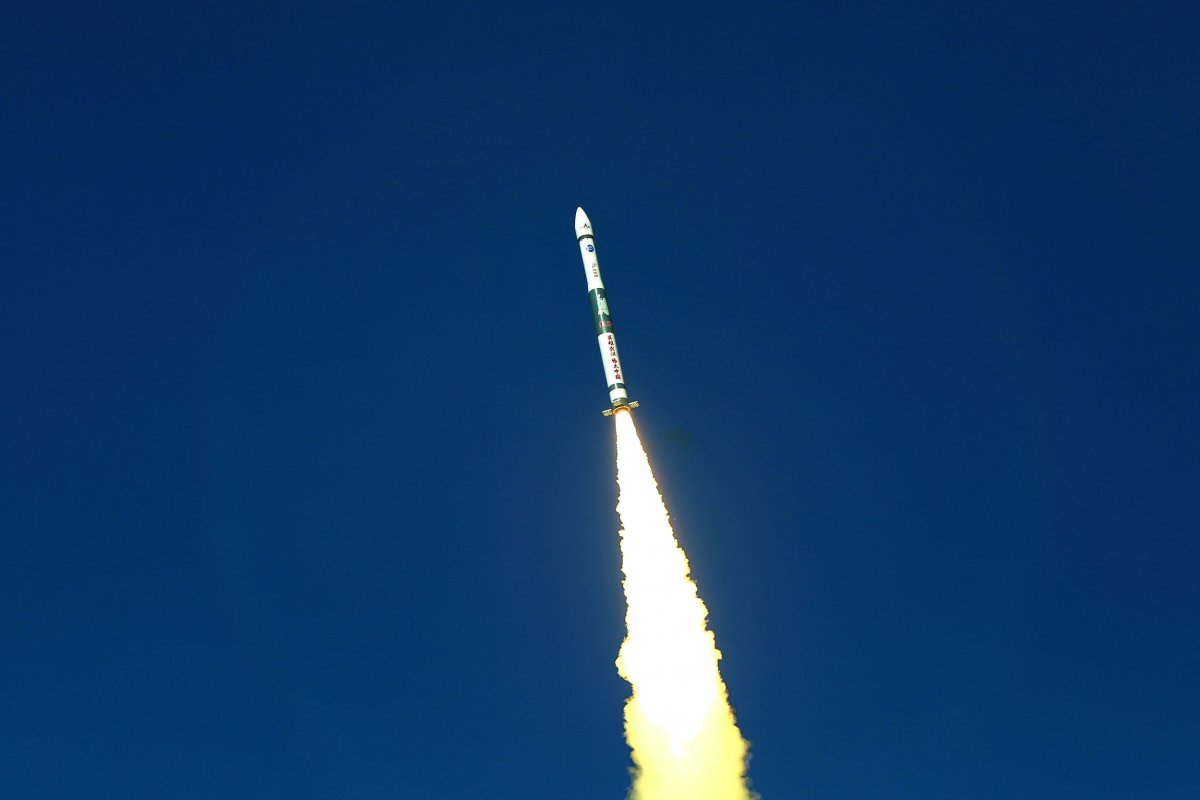NASA officials have launched an attack on China's lack of transparency and failure to act responsibly over the re-entry of its Long March 5B rocket.
The rocket broke up as it reentered Earth's atmosphere with its remnants landing north of the Maldives, in the Indian Ocean, according to Space Force's 18 Space Control Squadron.
It added the Long March 5B, which was made of four boosters and a core stage, fell into the sea at 10:14 p.m. on Saturday. It was launched from Hainan island on April 29.
The rocket contained the Tianhe module, which held what would be used eventually to house crew members on a permanent Chinese space station. It is the first of 11 missions that will need to be undertaken in order to complete the station.
But teams across Europe and the U.S. who monitored the uncontrolled fall of the rocket feared debris could come down on an inhabited area.
NASA accused Beijing officials of failing to "meet responsible standards."
Former Florida Senator Bill Nelson, the NASA Administrator, said: "Spacefaring nations must minimize the risks to people and property on Earth re-entries of space objects and maximize transparency regarding these operations.
"It is clear that China is failing to meet responsible standards regarding their space debris."
Nelson continued: "It is critical that China and all spacefaring nations and commercial entities act responsibly and transparently in space to ensure the safety, stability, security and long-term sustainability of outer space activities."
The space agency's comments echo the fears expressed by Defense Secretary Lloyd Austin who on Thursday had to publicly dismiss suggestions the rocket would be shot down over concerns where it could land.
He said: "At this point, we don't have a plan to shoot the rocket down. We have the capability to do a lot of things, but we don't have a plan to shoot it down as we speak."
Austin also fired off what appeared to be a veiled shot at China, adding: "For those of us who operate in the space domain, there should be a requirement to operate in a safe and thoughtful mode and make sure we take those kinds of things into consideration."
Chinese state-controlled media dismissed concerns over the rocket and downplayed any fears that it could have caused any significant damage.
The Global Times, a tabloid under the control of the Chinese Communist Party's People's Daily newspaper, quoted Wang Wenbin, a Chinese foreign ministry spokesman, who said during a media briefing on Friday: "It is common practice across the world for upper stages of rockets to burn up while reentering the atmosphere.
"To my knowledge, the upper stage of this rocket has been deactivated which means that most of its parts will burn up upon re-entry, making the likelihood of damage to aviation or ground facilities and activities extremely low."

Uncommon Knowledge
Newsweek is committed to challenging conventional wisdom and finding connections in the search for common ground.
Newsweek is committed to challenging conventional wisdom and finding connections in the search for common ground.
About the writer
Anders Anglesey is a U.S. News Reporter based in London, U.K., covering crime, politics, online extremism and trending stories. Anders ... Read more
To read how Newsweek uses AI as a newsroom tool, Click here.








